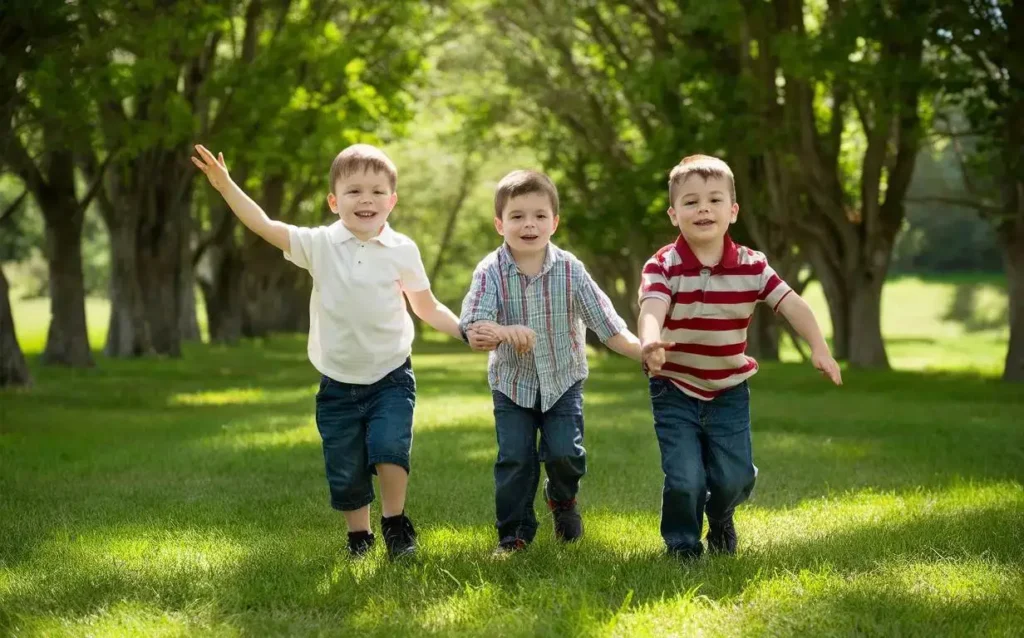One of the most pivotal readings parents can educate their children is how to have fun. In the moment’s stable stimulation and overscheduling world, numerous kiddies miss out on unshaped playtime, which is vital for their development. Learning to enjoy rest exertion and time-out is an important life skill. still, shifting mindsets and making fun a precedence requires trouble. Parents can implant in children a love of play and excitement for new gests with sufferance and guidance.
Benefits of Play for Childhood Development
Extensive research shows play has huge cognitive, physical, and socio-emotional benefits for kids. Children practice important executive functioning skills like problem-solving, creativity, and flexibility in a low-pressure setting when freely exploring their world through make-believe or open-ended toys. This builds a solid foundation for lifelong success. Additionally, play is a stress reliever and buffers kids against daily pressures. Physically, active play aids motor development and coordination and reduces obesity risk.
Perhaps most significantly, social pretend play allows children to collaboratively create scenarios where they can try out adult roles and learn valuable lessons. Through shared fun, they practice navigating relationships, cooperation, negotiation, and resolving conflicts – skills crucial for forming healthy bonds. Children who can playfully interact tend to have advantages well into adulthood as more socially and emotionally intelligent individuals. Beyond pragmatic advantages, the play makes kids happy. Developing a sense of joy and pride in themselves through unguided entertainment lays the groundwork for resilience.
Transitioning to a Fun Mindset
Helping overscheduled children experience unstructured play again requires commitment. Parents must carve out dedicated downtime where play is the priority over other activities. They can involve kids in family activity planning and validate feelings to build buy-in. Modeling enjoying hobbies and time with loved ones teaches fun and is fulfilling, independent of achievements. Making consistent yet gradual changes has a more lasting impact than drastic overhauls. Replacing one structured commitment with choosing leisure shows kids fun can and should be a daily part of life.
Guiding Play Attitudes and Choices
Stocking homes with diverse, open-ended toys that enable endless imaginary scenarios keeps children’s interests engaged. Giving space and time for self-directed pretend nurtures creativity within comforting parameters. Joining play demonstrates it to little ones before letting them independently direct without input.
Environments also speak volumes about what behaviors are valued. A cozy reading nook with blankets, a kid-friendly art display area, a garden they can tend, accessible games and toys, and designated spaces for construction set children up to freely discover enjoyment on their own terms. Exposing kids to parks and museums fuels excitement while cultivating natural curiosity. Experiential learning blends education with glee.
Making Outdoors an Adventure
Going outside lifts mood but requires seeing it as a wonderland. Parents can spark kids’ passion for nature by participating in beautification projects together or celebrating mistakes. Carrying portable playthings, packing amusement-laden “play anywhere” bins, and making backyard meals shared routines encourage playful exploring. Noticing seasonal details sparks inquisitiveness toward the bigger world. Sharing the joy of simple discoveries in nature plants seeds for lifelong stewards.
Prioritizing Positive Feelings
Kids’ well-being depends strongly on feeling happiness, hopefulness, and confidence – emotions fostered through play, lighthearted family interactions, optimistic storytelling, and praised moments of silliness. By focusing on feelings over accomplishments, children learn to value fleeting pleasures that uplift moods and counteract daily stresses. Making silly faces, playing their favorite upbeat music while dancing together, or using genuinely amused language nurtures their emotional security and resilience. Witnessing adults’ appreciation for life’s simple unexpected delights builds this mindset.
Concluding Thoughts

Teaching kids the wonders of leisure through guidance, environment, modeling, and fun-prioritizing language is a gift that nurtures growth. Their natural creativity, wonder, laughter, and passion for play shape their abilities to tackle challenges positively as empathetic, autonomous individuals. By following children’s lead to experience uninterrupted joy through activities they choose, parents instill an appreciation of living fully in each moment – a perspective that will brighten their own and others’ days. Most importantly, letting kids be kids lays the soulful foundations of childhood they’ll recall wistfully yet grateful for in adulthood.